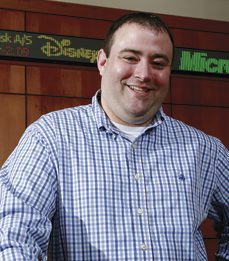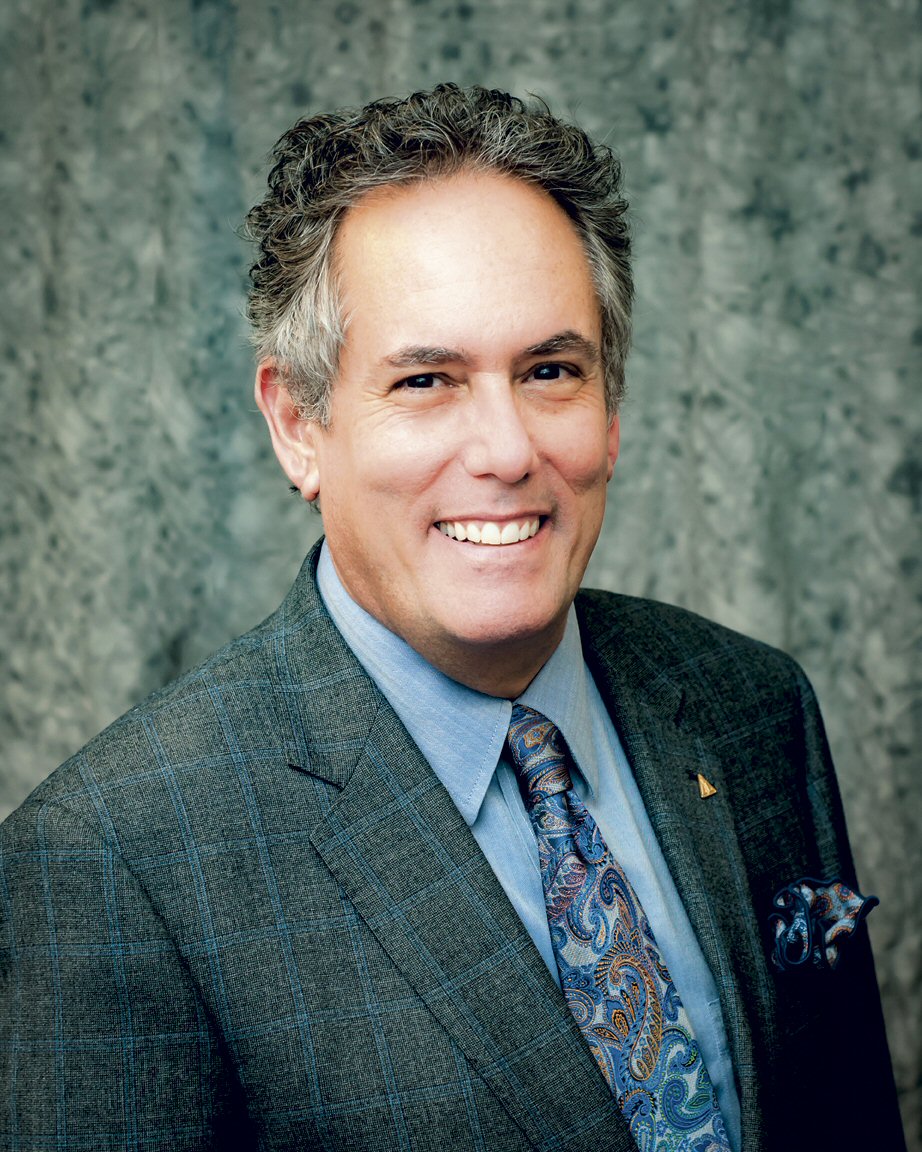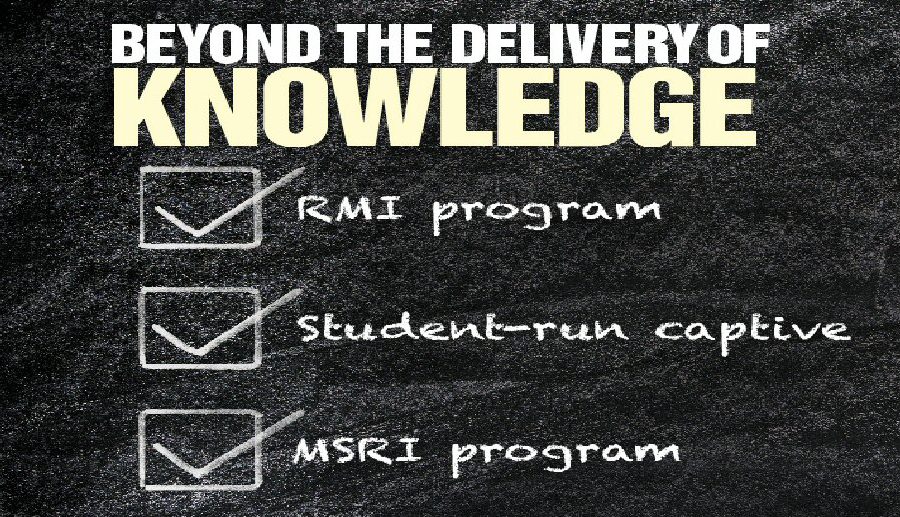BEYOND THE DELIVERY OF KNOWLEDGE
Butler University offers master’s degree in risk and insurance online
Today about 80 colleges and universities in North America offer an undergraduate degree in risk management and insurance (RMI). One of these schools, Butler University, will, like a handful of others, take things a step further by offering a Master of Science in Risk and Insurance (MSRI). Its first batch of students is scheduled to arrive on campus in May 2019.
The campus visit will be brief, however, because the MSRI program will be the first online graduate course offered by the university. So why are students arriving on campus for an online course? Unique to this educational experience will be two residency programs—the first on Butler’s campus in Indianapolis, Indiana, to kick off the program, and the second in Bermuda to wrap things up.

—Zach Finn, MSM, ARM, AINS
Clinical Professor and Director
Davey Risk Management and Insurance Program
MSRI program
The application process for Butler’s first MSRI class began on August 1 with a deadline of December 1. While all graduate programs have requirements and prerequisites, this program offers students some leeway.
“When we think about graduate training, it’s always our preference that the students coming on board are at a common level, not too close to undergrad but as a group ready to start graduate-level courses,” says Craig Caldwell, associate dean of graduate and professional programs. “The prerequisite courses are an attempt to make sure they’re relatively leveled.
“Given that we’re dealing with an industry that’s so heavily credentialed, it doesn’t make sense for us to blindly throw the prerequisites at every single person walking in the door. We eliminate them when it’s appropriate. For example, a lot of the standard designation programs for risk and insurance immediately waive the primer course.”
J.J. DeBrosse, director of graduate and professional recruitment, says there is a list on the program’s website of the designations—like CIC or CPCU—that will waive the MSRI primer. “Those entering the program without a professional designation and an unrelated bachelor’s degree will have to take the risk and insurance primer class.”
Applicants who are required to take the primer class have until April 2019 to complete the course. Applicants may also request a waiver for the Graduate Management Admission Test (GMAT).
What can applicants expect from the new MSRI program?
Victor Puleo, CFP, CIC, who holds the Davey Chair of Risk Management and Insurance, says the university will offer two courses each session, starting with two next summer, and continuing with the fall and spring semesters. The entire program will consist of 30 hours of coursework. “Courses are not going to be concurrently run but will each be six- or seven-week-long courses with a few days off in between because we thought that was a better option than running two semester-long concurrent classes.

—Craig Caldwell
Associate Dean of Graduate and Professional Programs
“The nice thing about our master’s program is that it doesn’t have just insurance and risk management courses,” Puleo adds. “It also includes courses from our MBA program on topics like leadership and organizational behavior, in addition to focusing on insurance topics like hard data analysis, loss control and loss financing. It’s going to be a very well-rounded program.”
Zach Finn, MSM, ARM, AINS, clinical professor and director of the Davey Risk Management and Insurance Program, says he, Puleo and others connected with the program have been meeting with a number of firms and organizations to develop a pipeline of companies that would like professional help with risk and insurance or employee benefits issues but are willing to engage with master’s students at reduced rates for bringing some of those issues into the classroom. “A lot of the firms in the state have the same issues from a risk management and employee benefits perspective; the smaller ones may not have in-house expertise,” he says.
As a test case, the program creators have worked with a former faculty member who runs his own company.
“We’re hoping that each cohort of students will have a selection of nonprofits and small businesses to choose from and identify problems that can be solved in the classroom,” Finn says. “This could help them with property values or loss control or looking at their insurance program structure and making sure it’s appropriate for their business.”
The online courses will include group projects, discussion and chat boards, and conference calls. Content will be presented in an on-demand video format.
“It’s not a self-taught program; every course will have a faculty instructor,” Puleo says. “We plan to pace them through the curriculum in a timely manner. If you give students the entire six to seven weeks’ worth of material at once, they typically won’t get it done until the last week.”
Adds Caldwell: “If you look at studies about massive open online courses (MOOCs) that anybody can take, the dropout rates are really high. Very quickly the online education community figured out that they had to have intense touchpoints and feedback from faculty. You can’t throw somebody into one of these programs and hope they pop out in six or seven weeks; it just doesn’t work.
“At the Lacy School of Business, we have a detailed philosophy of experiential learning,” he continues. “With a fully online program you run the risk of not creating a good community or an identification with the school. It’s something we’ll work hard to avoid.

—Victor Puleo, CFP, CIC
Davey Chair of Risk Management and Insurance
“These folks will be full members of the university’s Lacy School of Business. We want them to feel like Bulldogs. We’re going to bring them to campus and expose them to the way we do things. They’re going to meet people in our networks and expand their own networks.”
The students will visit the campus at the beginning of the MSRI program for the first of two in-residence sessions.
“They’ll arrive on May 30, a Thursday, and leave the following Sunday,” DeBrosse says. “The idea is that aside from the classwork we’ll also be introducing them to all the resources available throughout the course. We want to expose them to the culture of Indianapolis and also to its industry experts. They’ll keep pretty busy for those four days.”
The in-residence in Bermuda is tentatively scheduled for early November 2020, with students arriving on a Thursday and leaving on a Sunday.
“We have a lot of opportunity with the Bermuda residence experience,” Finn says. “We’ve met with various associations and have built a lot of partnerships down there.”
“The Bermuda residence will be the really heavy application piece where the students will be helping to solve company problems,” Caldwell adds.
 On-campus captive
On-campus captive
In 2017 Butler launched MJ Student-Run Insurance Company Ltd., a captive run by its undergraduate RMI students.
“Butler is currently the only university with a student-run captive, and we want to offer our graduate students an opportunity to participate in in-class projects and projects for the university,” Puleo says.
MJ is a class one captive, meaning it is licensed only to insure risks at the university.
“Captives should insure the things that are most important to it,” Finn says. “We’re a liberal arts and science university, and that’s what we insure.”
Among the campus items insured through the captive are rare fine arts books, the largest telescope in Indiana, and band uniforms and musical instruments, including rare cellos from the seventeenth century. The captive even insures the school’s live mascot, Trip (Butler Blue III), and Marcus, the campus’s bomb-sniffing dog.
“With our student-run captive, the sky’s the limit as far as what we can do with it,” Finn says. “We’re writing first-party coverages where claims are possible but not likely, like commercial liability for our student-run businesses. It’s very manageable for undergraduate students.”
Austin Oldham, an alumnus of the Davey Program who worked at Purdue University before coming to Butler in March, is the director of risk management and insurance. As he starts work, the risk management program will be looking for ways to leverage the captive to do more for the university. It may be taking coverages that the university is buying in the traditional market and putting them into the captive.
“We have any number of third-party products that we could begin to offer,” Finn says. “One of the first projects we might have the MSRI students do is a feasibility study on whether we should become a class two or class three captive and start writing third-party business.”

—J.J. DeBrosse
Director of Graduate and Professional Recruitment
Final preparation
While Butler’s RMI undergraduate degree offers a solid foundation of knowledge, the graduate program will take things a step further; and as the initial class approaches next year, the faculty is excited to get things started.
“Our undergraduate program helps our students answer the fundamental questions for a career in insurance,” Finn says. “Frankly, this is why the industry has a hard time recruiting Millennials and high school students. Our greatest strength is our greatest weakness; we have too many broad opportunities to explain precisely.
“I tell our undergrads that their experience will help them decide if they want to work in personal or commercial property/casualty or life and health. Our undergraduate curriculum gives them the exposure to answer career-path questions. The master’s program is a chance to double down on the core risk and insurance principles so the students can become leaders in their organizations.”
When developing the program, Finn took his personal experience into consideration.
“I have an online master’s degree in risk and insurance, and I think we will present it well,” he says. “It will feel like a residential program. Students will be working in a cohort, and the material and delivery will be the same. It’s just that the channel in which it’s received will be different.
“I was excited to go to my graduation because I developed a relationship with my cohort over the course of two years, and I had never seen the other members in person.”
Adds Puleo: “The difference between Zach’s program and ours is that we’ll introduce the cohort in the first in-residence so they’ll know who’s working on the other side of that computer throughout their experience. They won’t just get to know the other students but the faculty as well.”
“Content and curriculum are an important part of any academic program,” Caldwell says. “Given the unique nature of the insurance industry, another piece we are bringing to this program is career coaching. From the first residency at Butler to the final residency in Bermuda, we will give the students opportunities to talk with senior-level executives in the industry. We’ll bring in career mentors who have experience in the industry and are on the HR/talent development side to provide guidance.
“The MSRI program will go well beyond the delivery of knowledge.”
For more information
www.butler.edu/msri
By Christopher W. Cook







